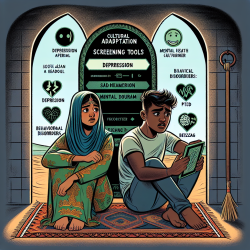The Transformative Power of Narrative Medicine
In the ever-evolving landscape of healthcare, the need for compassionate, empathetic, and inclusive care has never been more pressing. The recent research article, "Narrative Medicine: The Power of Shared Stories to Enhance Inclusive Clinical Care, Clinician Well-Being, and Medical Education," sheds light on a powerful yet underutilized approach: narrative medicine.
What is Narrative Medicine?
Narrative medicine is a pedagogical framework that honors the individual and collective stories within clinical and academic settings. It encompasses activities such as engaging with poetry, prose, reflective writing, and the visual and performing arts. The goal is to address the emotional and experiential aspects of caring for the ill, validating the patient's experience while encouraging creativity and self-reflection in healthcare practitioners.
Benefits of Narrative Medicine
- Enhancing Patient Care: Narrative medicine fosters empathy and compassionate care, crucial components of the doctor-patient relationship. By engaging in narrative exercises, practitioners can improve communication and patient outcomes.
- Clinician Well-Being: The practice of narrative medicine can mitigate burnout and bolster resilience among healthcare providers. By sharing stories, clinicians can process trauma, enhance self-awareness, and foster a supportive community.
- Medical Education: Integrating narrative medicine into medical education enhances trainees' skills in empathy, communication, and professionalism. It prepares future practitioners to address complex socio-emotional issues effectively.
Implementing Narrative Medicine in Practice
Practitioners looking to enhance their skills and well-being can integrate narrative medicine into their daily practice through various methods:
- One-on-One Patient Care: Use narrative exercises like the "3-Minute Mental Makeover" to build stronger connections with patients.
- Group Sessions: Facilitate group storytelling sessions to foster a sense of community and shared understanding among patients and clinicians.
- Self-Care for Clinicians: Engage in reflective writing and storytelling to process emotions and reduce stress.
Encouraging Further Exploration
For practitioners interested in exploring narrative medicine further, consider participating in workshops, book clubs, or online forums dedicated to this approach. Engaging with the broader narrative medicine community can provide valuable insights and support.
To read the original research paper, please follow this link: Narrative Medicine: The Power of Shared Stories to Enhance Inclusive Clinical Care, Clinician Well-Being, and Medical Education.










